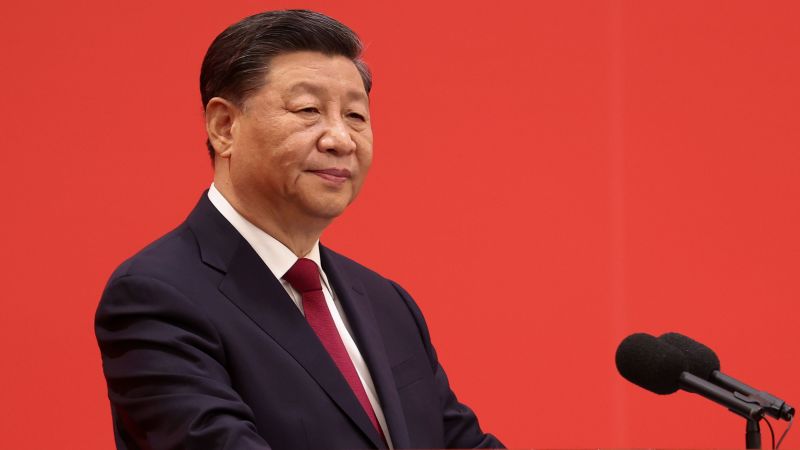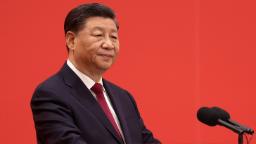

CNN
—
Xi Jinping’s unprecedented third term as China’s president was officially endorsed by the country’s political elite on Friday, solidifying his control and making him the longest-serving head of state of Communist China since its founding in 1949.
Xi was reappointed Friday as president for another five years by China’s rubber-stamp legislature in a ceremonial vote in Beijing’s Great Hall of the People – a highly choreographed exercise in political theater meant to demonstrate the legitimacy and unity of the ruling elite.
He received a unanimous 2,952 votes followed by a standing ovation.
The reappointment of Xi, China’s most powerful and authoritarian leader in decades, was largely seen as a formality, after the 69-year-old secured a norm-shattering third term as head of the Chinese Communist Party last fall.
In China, the presidency – or “state chairman” in Chinese – is a largely ceremonial title. Real power resides in the positions head of the party and military – two key roles that Xi also holds and was reappointed to at a key Communist Party congress in October.
Nevertheless, his reappointment as head of state officially completes his transition into a second decade in power.
And it comes amid a broader reshuffle of leadership roles in the central government, or the State Council, and other state organizations that further increases Xi’s already firm grasp on the levers of power.
Li Qiang, one of Xi’s most trusted protégés, is expected to be chosen China’s premier on Saturday.
Traditionally, the premiership is an influential role in charge of the economy, although over the past decade, its power has been severely eroded by Xi, who has taken almost all decision-making into his own hands.
On Friday, the National People’s Congress (NPC) also appointed other key state leaders, including Zhao Leji as the body’s head and Han Zheng as the country’s vice-president.
The newly appointed leaders all took a public oath of allegiance to the Chinese constitution inside the Great Hall of the People.
The NPC also approved a sweeping plan to reform institutions under the State Council, including the formation of a financial regulatory body and national data bureau and a revamp of its science and technology ministry.
The overhaul is seen as a further step by Xi to strengthen Communist Party control over key areas of policymaking.
While Xi has secured a firm grip on power, he faces a myriad of challenges both at home and abroad.
The Chinese economy is struggling to recover from three years of harsh zero-Covid restrictions, investor confidence is waning, and a demographic crisis is looming as the country registered its first population decline in six decades.
China is also facing a series of diplomatic headwinds from Washington and other Western capitals, as relations plummeted in recent years over Beijing’s human rights record, military build-up, handling of Covid and growing partnership with Russia.
In unusually direct remarks Monday, Xi accused the US of leading a campaign to suppress China and causing its serious domestic woes.
“Western countries led by the United States have contained and suppressed us in an all-round way, which has brought unprecedented severe challenges to our development,” Xi told a group of government advisers representing private businesses on the sidelines of the NPC meeting.
Xi has now entered new historical territory.
No Chinese leader had held the title of head of state for more than 10 years, including Communist China’s founding father, Chairman Mao Zedong.
Liu Shaoqi, who took over as state chairman from Mao in 1959, was sacked in 1968 and persecuted to death a year later during Mao’s tumultuous Cultural Revolution.
After Mao’s death, paramount leader Deng Xiaoping introduced presidential term limits in China’s constitution in 1982 to avoid the kind of chaos and catastrophe seen under Mao’s life-long rule.
Deng also led institutional reforms to bring a greater separation of positions and functions between the party and the state.
However, those efforts have been severely undermined by Xi, who greatly expanded the party’s hold on power – and his own grip over the party.
In 2018, China’s legislature abolished presidential term limits in a ceremonial vote, effectively allowing Xi to rule for life.
